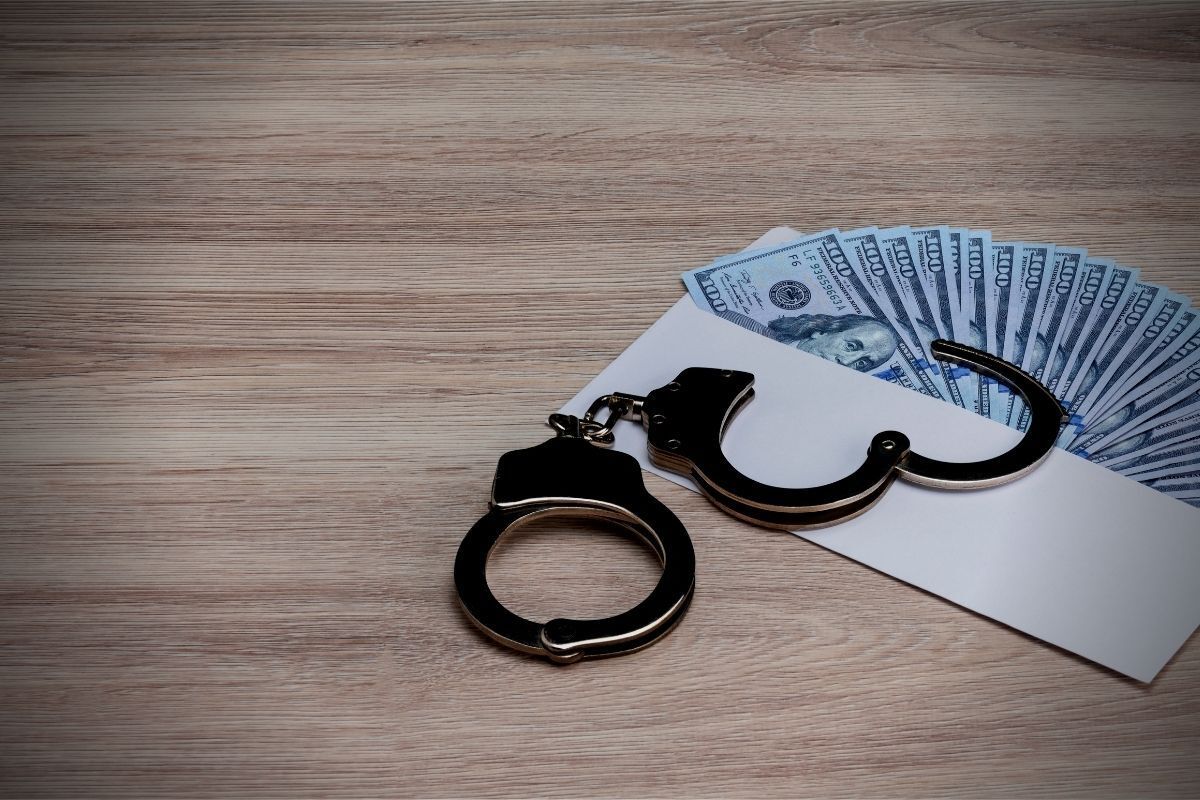Felony Narcotics Criminal Charges in Georgia
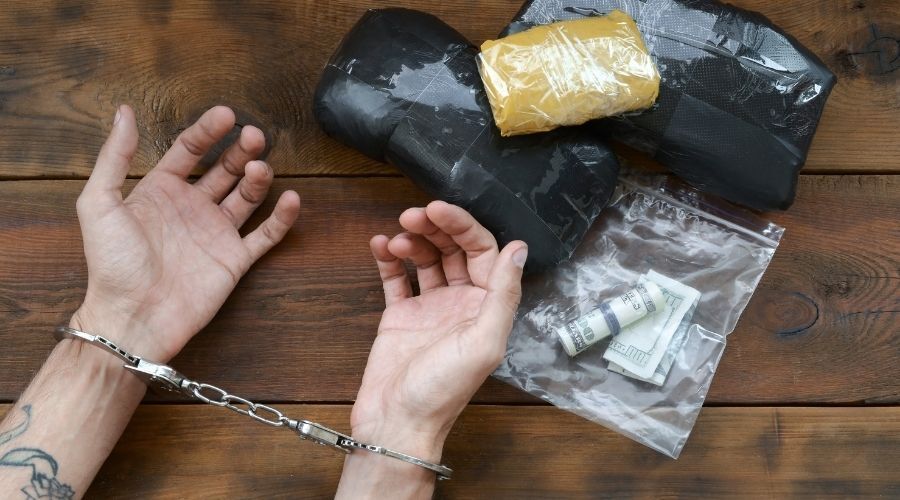
Drug Defense Attorney Atlanta
Here at Cobb Criminal Defense, our criminal defense attorneys aggressively defend clients from all types of drug charges in Cobb County, Cherokee County, and throughout the Metro Atlanta area. When you, a loved one, or a friend has been charged with a drug offense, you must understand the process. This guide will be designed to help you understand your drug charge, each of the stages in a drug case, potential punishments, and possible defenses for each type of drug charge. If you have any other questions about a drug charge, simply call (770)627-3221 for your free case review with one of our top drug charge defense attorneys in Georgia.
The Stages of a Drug Crime Case in the State of Georgia
The following is a brief “roadmap” of the criminal process in the state of Georgia:
Drug Offense Arrested or Citation
A drug crime case begins with an allegation that an individual has committed a drug offense, which leads to the filing of criminal charges. The suspect will either be issued a citation (or a copy of the criminal charges) or arrested. An individual is arrested depending upon the severity of the alleged crime perpetrated. The arresting law enforcement officer will then complete and file an arrest report, which summarizes the allegations and circumstances in which the officer issued the suspect a citation or placed the suspect under arrest.
If a suspect is arrested, the law enforcement officer should then read the suspect his or her Miranda Rights. Then the arresting officer will transport the suspect to jail or to a police station depending on whether the suspect was arrested by a county Sheriff’s deputy or a local city police officer. The suspect is then “booked.” The law enforcement officer will take the suspect’s photograph, fingerprint the suspect for their records, and collect all of the suspect’s personal belongings. Typically, the suspect is permitted to make their “one phone call” after the suspect has been processed into the law enforcement agency’s computer system. A suspect will typically make an initial appearance before a judge before they are released.
The Initial Appearance After a Drug Crime Arrest in Georgia
Usually, when a suspect has been arrested without a warrant, he or she will make their initial appearance before a judge with 48 hours of their arrest. However, if the suspect was arrested with a warrant, the court may take up to 72 hours to grant the suspect their initial appearance. Initial appearances (or first appearances) transpire in a courtroom located inside the jail.
At this first hearing, the magistrate judge reads all of the criminal charges filed against the suspect. The magistrate judge will ask the defendant if he or she has retained an attorney or not. At that time, the judge can appoint an attorney if the suspect cannot afford a private drug crimes lawyer. Next, the judge will rule whether or not to grant the suspect bail (also known as bond) and what the bail amount will be if granted. In some cases, the magistrate judge may not have the power to grant bail, and a superior court judge must preside over the bail hearing.
In the state of Georgia, a magistrate judge cannot grant bail for certain charges due to their severity and heinous nature.
A magistrate judge cannot set bond for the following charges:
If the magistrate judge has the jurisdiction to set bail in a suspect’s drug case, there are four statutory factors the judge must consider when deciding whether or not to set bail and the amount of bail.
These four statutory factors include:
- The defendant does not pose a significant risk of fleeing from the court’s jurisdiction or failing to appear before the court when required;
- The defendant does not pose a significant danger or threat to anyone, to the community, or to anyone’s property;
- The defendant does not pose a substantial threat of intimidating witnesses or obstructing the administration of justice.
If a defendant has been denied bail, he or she could be eligible for a reconsideration of their bail at a later stage in the defendant’s criminal case. 
The Preliminary Hearing in a Georgia Drug Case
The preliminary hearing is also called a committal cause hearing or a probable cause hearing. This hearing is an important “pretrial” hearing where a magistrate judge reviews the prosecutor’s evidence to decide if there is enough probable cause to conclude that the defendant likely committed the crime he or she is accused of. Should the magistrate judge conclude that a crime was likely committed, and, the defendant likely committed the crime or was party to the crime, the defendant’s criminal case would be sent to a higher criminal justice court for further proceedings. At the preliminary hearing, the defendant does not enter in a plea of guilt or innocence. However, if the defendant has retained an experienced drug crime defense attorney, in that case, his or her defense lawyer could successfully argue that the prosecution’s probable cause has not been established and plead to have the defendant’s drug charges dismissed. In Georgia, defendants released on bail are not entitled to a preliminary hearing.
Grand Jury Indictment, an Accusation, or an Information in Georgia Drug Cases
After the defendant has been formally charged with a crime in Georgia, the defendant will then be presented with an “indictment,” an “accusation,” or an “information.” These are designations for the formal criminal charging process and the accompanying legal documentation.
An indictment, otherwise known as a “true bill,” is a charging document issued by a grand jury composed of between 16-23 citizens of the county where the crime(s) allegedly occurred.
“Informations” and “Accusations” are legal documents created by the prosecuting attorney without the need for a grand jury process.
Grand jury proceedings are made available to the prosecuting attorneys, their witnesses, and the grand jurors. The defendant and their defense team are not allowed to attend the grand jury proceeding but in certain circumstances where a law enforcement officer is named the defendant. According to Georgia Criminal Code, Georgia only requires grand jury indictments in criminal cases where the defendant faces the death sentence as a possible punishment if found guilty. “Accusations” and “Informations” are typically used for lesser, non-capital crimes.
Entering a Plea at an Arraignment Before a Georgia Court
At the “arraignment hearing,” the defendant will appear before the criminal justice trial court. He or she will be advised of the criminal charges filed against them, and the judge will ask the defendant to enter a plea of “guilty” or “not guilty” to the charges read to the defendant. If the defendant does not enter a plea, the court will automatically enter a plea of “not guilty” for the defendant. After the defendant has been “arraigned” and he or she has pleaded “not guilty,” the court will schedule a trial date. In many jurisdictions, the defendant can submit a “waiver of arraignment” to the prosecutor and the clerk of court to save a court appearance. The “waiver of arraignment” must include a plea and be submitted by your criminal defense attorney.
The Discovery Phase in a Georgia Criminal Drug Case
The “discovery phase” is the stage in which the prosecution and the defense exchange and review all of the evidence. Typically, this includes scientific evidence (e.g., fingerprints, drug analysis, etc.), a list of witnesses and their statements, tangible evidence (such as cash, cellphones, drugs, etc.), police reports, and the “indictment” or “accusation.”
At this time, the criminal defense might be required to give the prosecution notice of any alibis and information concerning any witnesses who will testify at trial. This stage is conducted well in advance of the criminal trial. This process helps the prosecution and the defense to determine the strengths and weaknesses of their cases. In many cases, the two sides will engage in plea negotiations, work out a deal, argue for a dismissal, and prepare for the criminal trial.
Motion Hearings in Criminal Drug Trials in Georgia
Legal documents that are submitted by a lawyer or by the defendant to the court are called “Motions”. Motions are used to petition for bail, ask for a decrease in the amount of bail ordered, compel discovery, dismiss charges, reset a court date, exclude illegally obtained or prejudicial evidence from the trial, and make many other formal requests. Should a defendant’s attorney file a motion in the criminal case, the defense will be given a hearing date to present the argument in support of the defense’s motion. That hearing is called a “motion hearing.” The judge may rule on a motion without setting a formal motion hearing in some circumstances.
Negotiating a Plea Agreement (Plea Deal) During Criminal Case
Many criminal cases do not go to trial due to several reasons. In some cases, the prosecution might be willing to dismiss the criminal charges if persuaded that the defendant is innocent or the prosecution does not have sufficient evidence to secure a conviction. However, in most drug crime cases that do not go to trial, the defendant, their defense lawyer, and the prosecutor negotiate a “plea bargain” that will punish the defendant for the crime(s) perpetrated with less severe punishments and/or a lesser crime. Once the attorneys reach an agreeable deal, the defense lawyer will offer the “plea deal” offer to the defendant.
Should the defendant accept the plea deal, a plea hearing date will be scheduled. At the plea hearing, the defendant will be required to attend, and the judge reviews and usually accepts the prosecution’s plea deal. The defendant will have the final say in whether they accept or reject the plea recommendation. Once the defendant has agreed to the plea deal, the judge then rules to accept or reject the plea deal. 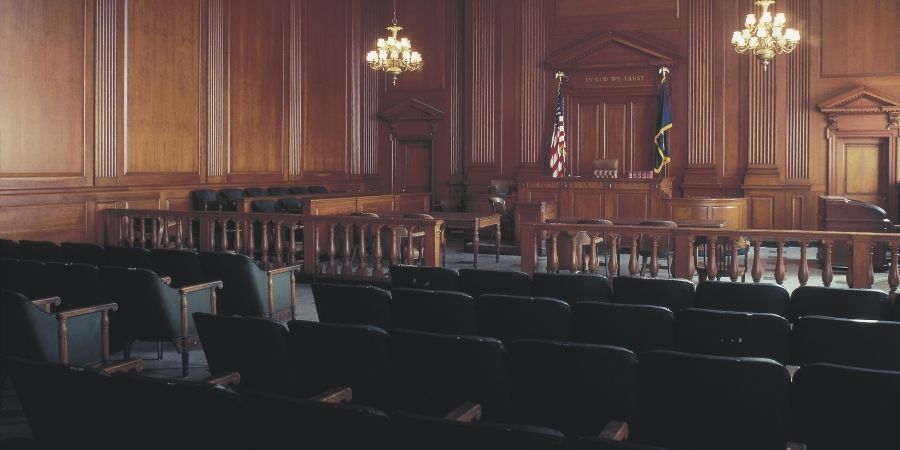
Taking a Drug Crime Case to Trial
The most complicated stage of a criminal case is the trial. There are two different kinds of criminal trials, “Jury Trials” and “Bench Trials.”
Criminal Jury Trials in Georgia
In the state of Georgia, criminal defendants have the legal right to a jury trial of their peers in all misdemeanor and felony criminal charges. However, a defendant is required to request (demand) a trial by jury to receive one in most cases. Typically, the request for a jury trial is submitted at the arraignment hearing or by submitting a written motion. Georgia is unique in that the prosecuting attorneys also have a right to demand a trial by jury. Should either the defense or the prosecution make a demand for a jury trial, it will likely be granted.
Criminal Bench Trials in Georgia
Any trial that is held without a jury is known as a “bench” trial. A bench trial is presided over and ruled on by a judge. The judge hears the case and then makes a ruling as to whether the defendant is guilty or not guilty of the criminal charges. Bench trials can be helpful when the law is on the defendant’s side, and the defendant does not believe a jury would be on their side. For example, if the drug offense included harming children. That one detail could make a jury trial less beneficial to the defendant. Moreover, familiarity with the judge might be a benefit to try a drug case without a jury.
Calendar Call in Georgia Criminal Trials
The defendant and their attorney will be directed to attend a “calendar call.” A calendar call is a short appearance before the criminal justice court, and the attorneys announce whether or not their side is ready for trial. If the attorneys are ready for trial, the judge will set the specific date for trial.
Voir Dire in Criminal Trials in the State of Georgia
Voir dire opens up the trial. Voir dire (also known as “jury selection” involves the prosecution and the defense taking turns each asking potential jurors questions and eliminating or “striking” jurors they do not want on the jury. A potential juror is removed from the jury pool for two reasons. The lawyers can remove potential jurors as long as there is a legal or valid factual reason. Disqualifying a juror or to “strike for cause” a potential juror because legal reasons such as the juror are law enforcement and have disabilities, making it difficult to serve on a jury, such as hearing or language difficulties. The other way to eliminate a potential juror is referred to as a “peremptory challenge.” Peremptory challenges may be made without cause but cannot be used in a sort of prejudicial way, such as religious, gender, or racial basis.
Opening Statements in a Georgia Criminal Trial
Opening statements allow the prosecution and the defense to summarize their evidence and to explain the course of events from their perspectives. Usually, the prosecutor goes first, and the defense attorney follows. Each attorney may waive or reserve their opening statement. Opening statements are considered one of the most crucial elements in the trial and significantly impact the result of criminal cases.
The Presentation of Evidence in a Georgia Criminal Trial
The prosecution then presents its evidence against the defendant. The evidence might include:
- Examination of witnesses.
- The introduction of scientific evidence.
- Physical evidence.
- Any other items that are intended to prove that the defendant committed the alleged crime.
The defense then questions (cross-examine) the witnesses called by the prosecution and vice versa. Once the prosecuting attorneys have rested their case, the defendant presents his/her own evidence to show that they are not guilty of the alleged crimes. The prosecution bears the burden of proof in a criminal trial. This means that the defendant does not have to present any evidence and could be found not guilty should the prosecution’s case not prove beyond a reasonable doubt that the defendant is guilty of the crime(s) the defendant has been accused.
Closing Arguments in a Criminal Trial
Closing arguments are often the most dramatic portion of a criminal trial. Closing arguments usually include an overview of the evidence presented, an explanation about how the jury should understand the evidence, and pleas that the jury or judge should find in favor of the prosecution or the defense. The court then explains to the jury that the opening statements and the closing arguments are not part of the trial’s evidence.
Jury Deliberations in Georgia Criminal Trials
The criminal justice judge will then read the jury a set of jury instructions concerning the applicable law and then ask the jury to retreat to the deliberation room and decide whether the defendant is guilty or not guilty. The jury will begin the deliberation process by selecting a jury foreperson. The jury foreperson guides the deliberation, communicates with the court, and ultimately delivers the verdict to the court. A criminal trial conviction requires a unanimous vote. The deliberation process lasts a few minutes to several days, depending on the complexity of the criminal case. If the jury does not reach a unanimous decision, then a “hung jury” has occurred. The criminal case will be announced a mistrial, and the case could be tried again.
The Sentencing Phase of a Georgia Criminal Trial
If the defendant is found “not guilty,” the judge will release the defendant. However, if the defendant has been found “guilt,” the judge will review the sentencing guidelines and impose the punishments. The judge may impose the sentencing immediately or take additional time to determine the appropriate penalties. In some criminal cases, presentence investigations may be performed, and the defense attorney will present mitigating evidence to persuade the judge to hand down a more lenient sentence. Likewise, the prosecuting attorney is allowed to show evidence and argue for increased punishment. Drug crimes are punished according to Georgia’s criminal statutes and could include prison or jail time, fines, probation, restitution, community service, banishment, and even death is a capital offense.
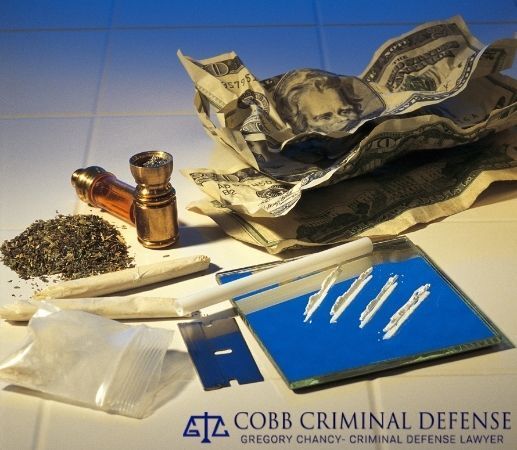
How Georgia Classifies Controlled Dangerous Substances (CDS)
Georgia divides its controlled dangerous substances into five “schedules,” according to the drug’s likelihood for abuse. The Georgia Controlled Substances Act contains five schedules of controlled substances. In Georgia, Schedule I drugs are deemed the most dangerous drugs, and Schedule V are considered the least dangerous drugs.
Georgia also considers the compounds used as principle compounds or ingredients to make illegal drugs as controlled substances per “Immediate Precursor”.
Schedule I Drugs
Schedule I drugs are considered to be the most serious classification of controlled dangerous substances. Schedule I drugs are considered to be highly addictive and have no medicinal use. The list of Schedule I drugs is found under O.C.G.A. §16-13-25, and a few examples include:
- Ecstasy
- Heroin
- LSD
- Morphine
Under O.C.G.A. §16-13-30(a), it is against the law for any person to sell, purchase, possess, or have under their control any controlled substance in the state of Georgia.
Schedule II Drugs
Schedule II Drugs are highly abused but are considered to be less addictive than Schedule I drugs. The complete list of substances classified as Schedule II drugs is found in O.C.G.A. §16-13-26.
The following are a few well-known Schedule II drugs:
- Amphetamine
- Cocaine
- Codeine
- Fentanyl
- Hydrocodone
- Methadone
O.C.G.A. §16-13-30(a) states that it is illegal for any person to purchase, possess, sell, or have under his or her control any controlled substance in the state of Georgia.
Schedule III Drugs
Schedule III Drugs present less risk for abuse than Schedule I or Schedule II drugs. A few of these drugs have an accepted medical use, and the abuse of these drugs may lead to high psychological dependence and low or moderate physical dependence. A full list of drugs classified as Schedule III Drugs is found in O.C.G.A. §16-13-27.
A few of the most common Schedule III drugs include:
- Anabolic Steroids
- Testosterone
- Ketamine
According to O.C.G.A. §16-13-30(a), it is illegal for a person in Georgia to buy, possess, sell, or have under their control any Schedule III controlled substance without a prescription.
Schedule IV Drugs
Schedule IV drugs (such as diazepam) have a lower potential for abuse than Schedule III drugs, have an acceptable medical use, and their abuse may lead to limited psychological and physical dependence in relation to Schedule III drugs.
Schedule IV drugs have less potential for abuse than Schedule III drugs. A few Schedule IV drugs have accepted medicinal uses. Abuse of these drugs could lead to limited psychological and physical dependence. The list of drugs classified as Schedule IV Drugs is outlined in O.C.G.A. §16-13-28.
The following are a few examples of commonly known Schedule IV drugs:
The Georgia laws regarding possession of a Schedule IV Drug are outlined in O.C.G.A. §16-13-30(a). In Georgia, it is against the law to sell, purchase, possess, or have a Schedule IV drug in his or her control without a prescription.
Schedule V Drugs
Schedule V drugs are the smallest probability for abuse than any other schedule of drugs. Schedule V drugs typically have some accepted medicinal uses, and these drugs have a limited risk of dependency. These drugs also include medications that contain minimal amounts of narcotic medications.
The following is a common Schedule V controlled substance:
Under O.C.G.A. §16-13-30(a), it is illegal for anyone in Georgia to sell, possess, purchase, or have a Schedule V drug under his or her control without a prescription. 
Criminal Penalties For Drug Possession
Penalties for Possession of a Controlled Dangerous Substance (CDS)
Classifies Controlled Dangerous Substances (CDS) possession crimes in the state of Georgia are all classified and charged as felonies, except for possessing a small amount of marijuana. The fines, prison sentences, and other penalties for felony CDS possession depend on the drug possessed, the quantity possessed, and if the defendant has prior criminal charges.
Penalties for “Possession of Schedule I CDS or Schedule II Narcotics” in Georgia
In the state of Georgia, possession of a Schedule I drug or Schedule II narcotic is a felony that carries a prison sentence of two to fifteen years. A second, third, or subsequent conviction for possession of a Schedule I drug is punished with a five to 30 years prison sentence.
Penalties for “Possession of Schedule II CDS” in Georgia
An individual caught in possession of a Schedule II CDS (other than an illegal narcotic) is charged as a felony and is punishable by to two to fifteen years in prison. A second, third, or subsequent conviction of possessing a Schedule II CDS is punishable with five to 30 years in prison.
Penalties for “Possession of Schedule III, IV, or V CDS” in Georgia
Possession of a Schedule III, IV, or V CDS in the state of Georgia is classified as a felony and is punishable with a prison sentence of one to five years. A second, third, or subsequent possession of a Schedule II, IV, or V drug conviction is punished with a prison sentence of one to ten years.
Possession of Drugs with Intent to Distribute Charges in Georgia
Schedule I or II Drugs
The prison sentence for Possession of Schedule I or Schedule II Drugs with Intent to Distribute in the state of Georgia is between five to thirty years. A second or subsequent offense is punished with a prison sentence of ten to forty years or possibly life in prison under O.C.G.A. §16-13-30(d).
Possession of Schedule I or Schedule II Drugs with Intent to Distribute within 1,000 Feet of School Grounds, a Housing Project, a Park, or in a Drug-free zone is a felony punishable by up to twenty years in prison and/or up-to $20,000 in fines for a first offense. A second, third, or subsequent offense is punished with at least five years but no more than forty years in prison and/or up-to $40,000 in fines.
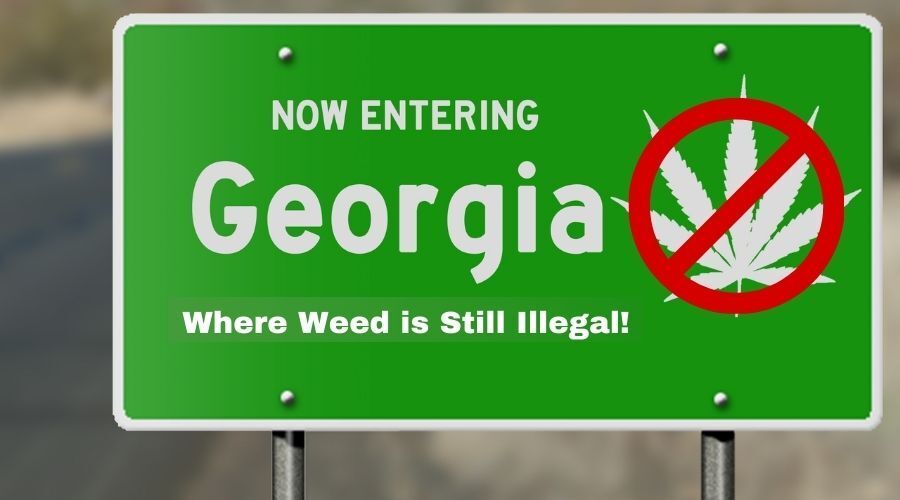
Georgia Marijuana Laws
Georgia Code Section 16-13-25 through 16-13-29
Marijuana is treated as a controlled substance, but possession of less than one ounce of marijuana is a misdemeanor offense and is punishable with up to one year in jail. Any possession of marijuana over one ounce is a felony offense in Georgia.
Penalties for Possession of Marijuana
In Georgia, the punishments for possession of marijuana will depend on the amount of marijuana the defendant has in his or her possession. In Georgia, possessing less than one ounce of marijuana is charged as a misdemeanor, which is punishable by no more than one year in jail, up to $1,000 in fines, or both, or one year of community service. Possession of one or more ounces of marijuana is a felony that is punished with one to ten years in prison under Georgia Code Section 16-13-30.
Trafficking Illegal drugs in Georgia
Selling Cocaine in Georgia
In Georgia, the penalty for selling less than (28) twenty-eight grams of cocaine is punished with a prison sentence of five to thirty years under O.C.G.A. §16-13-30(j)(2). A second, third, or subsequent “cocaine dealing” conviction is punished with a prison sentence of ten to forty years or life in prison. Dealing twenty-eight grams or more is considered “trafficking cocaine.”
Trafficking in Cocaine, Marijuana, or Methamphetamine
In the state of Georgia, the difference between drug trafficking and related drug crimes such as drug possession, drug manufacturing, drug distribution, or drug dealing is the amount of the illegal narcotic or controlled substances involved in the criminal offense. Georgia drug trafficking charges are penalized based on the on accusations that a person was caught possessing, selling, distributing or manufacturing a large amount of illegal narcotics or controlled substances.
The various punishments are outline under Georgia Code §16-13-31 – Trafficking in cocaine, illegal drugs, marijuana, or methamphetamine; penalties. These criminal offenses are charged as felonies and since there is a larger quantity of narcotics involved in trafficking, drug trafficking charges carry mandatory minimum prison sentences that increase with the amount of the drugs found on the defendant.
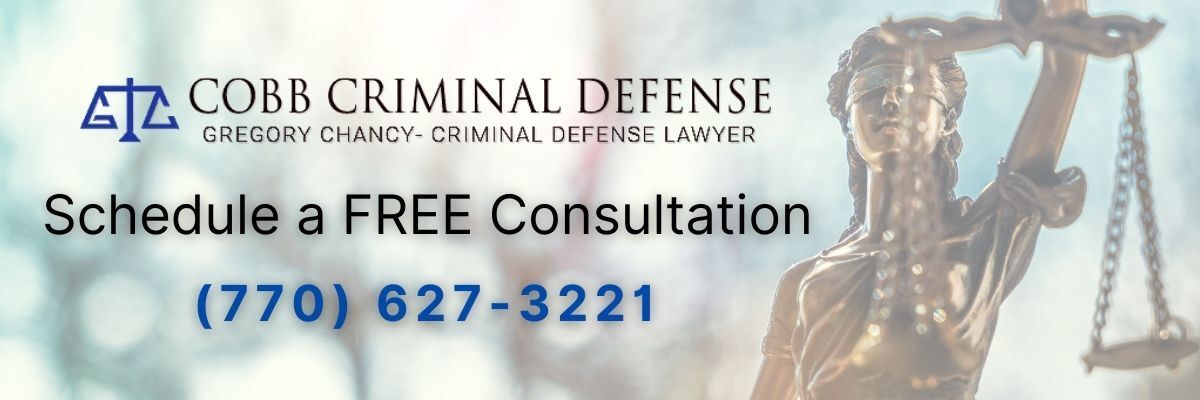
Facing Drug or Narcotic Charges?
If you are facing drug or narcotics charges then you need experienced and relentless representation immediately. The longer that you wait is the more time that the prosecution has to gather evidence and strengthen their case against you. Don’t risk your innocence and freedom for one more minute, give us a call to schedule a free consultation!
